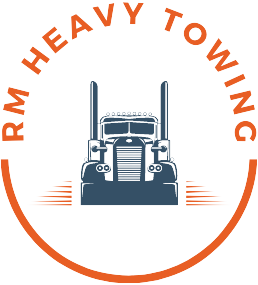Heavy duty towing, an essential service for vehicle recovery and transport, involves intricate science and engineering principles, especially when it comes to handling various loads. At Rocky Mountain Towing & Recovery, we’ve mastered the art and science of heavy towing. In this blog, we’ll delve into how our heavy tow trucks expertly manage different loads, highlighting the technology, techniques, and considerations that ensure a safe and efficient towing process.
Understanding Heavy Towing Capacities
Before we dive into the nitty-gritty details, it’s crucial to grasp the concept of towing capacities. Each heavy-duty tow truck, is designed with a specific weight limit. This limit encompasses the total weight of the vehicle being towed and any additional cargo it may carry.
Balancing the Load:
Achieving a well-balanced load is paramount in towing. An improperly balanced load can result in instability during transport. Therefore, meticulous attention is paid to positioning the load’s center of gravity optimally, ensuring a safe and controlled journey.
Selecting the Right Equipment:
Various towing scenarios require specialized equipment. For example, flatbed tow trucks are ideal for vehicles with low ground clearance or extensive damage, as they offer a secure loading platform. Conversely, wheel-lift tow trucks are well-suited for shorter tows, while heavy-duty wreckers are designed to handle more massive loads.
The Art of Connection:
The connection between the tow truck and the towed vehicle is a critical factor in ensuring secure transport. Tow trucks utilize different mechanisms, such as hooks, chains, or wheel-lifts, to establish a stable connection. The choice depends on the vehicle’s type, condition, and safety requirements.
Advanced Suspension Systems:
Modern tow trucks are equipped with advanced suspension systems that provide a smoother ride for the towed vehicle. These systems help absorb shocks and vibrations, reducing the risk of damage during transit.
Towing Electronics:
Sophisticated electronics play a pivotal role in towing operations. Heavy tow trucks often employ electronic braking systems to ensure controlled stops, while onboard computers continuously monitor load weight and adjust suspension settings accordingly.
Safety Precautions:
Safety is paramount in the towing industry. Heavy tow truck operators adhere to strict safety protocols, including the proper use of safety chains, lights, and signage to alert other drivers and ensure a secure towing process.
Environmental Considerations:
Environmental regulations may dictate the disposal of hazardous materials encountered during towing operations. Heavy tow companies are increasingly adopting eco-friendly practices to minimize their environmental impact.
Continuous Training and Certification:
Heavy tow truck operators undergo rigorous training and certification programs to stay updated on the latest techniques and safety measures. This commitment ensures that they are well-prepared to handle a wide range of towing scenarios.
Trust Your Heavy Duty Towing to Rocky Mountain Towing and Recovery
Heavy duty towing is both an art and a science, with heavy tow truck operators at Rocky Mountain Towing & Recovery relying on a combination of technology, expertise, and specialized equipment to handle different loads safely and efficiently. Whether it’s a light-duty tow or a heavy-duty recovery, our team is dedicated to mastering this science to provide top-notch towing services for all our clients. Trust us with your load, and we’ll deliver it with precision and care.
